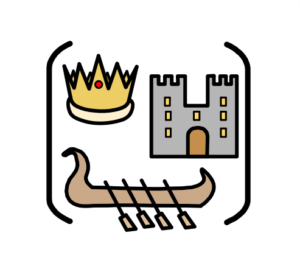History
The History Curriculum at The Pines
Our History curriculum aims to help pupils to gain knowledge and understanding about our past and that of the wider world. It aims to be engaging for all learners and to inspire their curiosity about the past and to give them the relevant knowledge and understanding about the world around them and the language of time. It aims to equip children to be able to explore artefacts and sources, communicate ideas, ask questions, think critically and notice connections, contrasts and changes over time. Our curriculum helps children to understand the process of change, not only in their lives but in the diverse groups and societies that we live in.
Intent:
Our curriculum aims to be accessible and ambitious for all. We want to ensure pupils understand that history is all around us; in our unique families and in our local and wider communities. We want to inspire pupils’ curiosity about themselves, others, past events and objects from the past. We want them to know and communicate about the past, ask questions and explore how and why things change over time. We want to help pupils to develop an increasing historical vocabulary and be able to use of the language of time. We want them to a explore history in a coherent way to gain knowledge and understanding of past events in Britain and the wider world. The curriculum is structured in a way to help pupils to be able to make links between current and prior learning and help pupils develop critical and analytical thinking skills. Teachers ensure they explore the job roles that are linked to history and how many of the historical skills that pupils develop are useful in other industries and professions.
Implementation:
Our curriculum is shaped by our school vision which aims to enable all children to be best they can possibly be. We teach the National Curriculum, differentiated to the needs of the children. Teachers are supported by clear skills and knowledge progression documents which ensures that skills and knowledge are built on year on year and sequenced appropriately and pupils are able to make links across the curriculum. Where appropriate, topics are linked to the English theme to enable more meaningful cross curricular links. It is important that the children develop progressive skills and do not just learn a series of independent facts about the past. Lessons are appropriately pitched to ensure lessons are challenging but relevant to the needs of the pupils. We provide a rich variety of ‘hands-on’ learning in lessons and curriculum enrichment experiences linked to the topics covered. The curriculum aims to support children to develop historical skills and other transferable skills which will help them in their adult life, such as being able to ask and answer questions, conducting research, exploring artefacts and evidence, reaching conclusions and communicating their ideas and points of view. In primary, we alternate History and Geography topics across the year ensuring that our children receive a well-rounded teaching of the humanities subjects throughout the year. In secondary, pupils have discrete History and Geography lessons each week.
The key aim of the Early Years curriculum is to provide high quality play with planning based on themes allowing pupils a holistic approach to learning. Planning for the specific area of understanding the world aims to guide the pupils to make sense of their physical world and community. Within the continuous provision (activities provided throughout the day indoors and out) children have the opportunity to increase their knowledge of people and communities by listening to a broad range of stories, non-fiction books and poems and rhymes as well as visiting local libraries, meeting important members of society such as police officers, paramedics and identifying similarities and differences within our families. Pupils will have the opportunity to foster an understanding of our diverse world by, engaging with play that is child led, play which is sensitively supported and extended by adults and play that is guided towards specific educational outcomes.
Impact:
Pupils are excited and inspired to learn about the past. Pupils demonstrate enthusiasm and engage with learning in History, they explore a wide range of sources and artefacts to explore and find out about the about the past. We enable pupils to be able to learn about themselves and their past and be able to develop vocabulary to communicate passage of time and change. We enable pupils to develop a chronological understanding of history, relevant to their needs and to develop critical and analytical thinking skills. Pupils have opportunities to draw comparisons with the historical eras that they study and gain understanding and perspective about events that have shaped the world in which we live. Pupils develop a range of transferable skills to enable them to succeed in their next stage of education.
